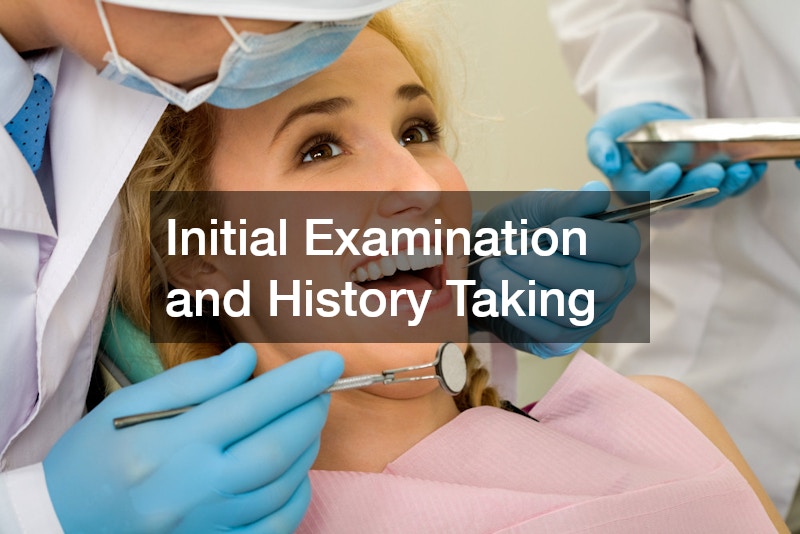Understanding the importance of regular dental visits and oral hygiene is crucial for maintaining a healthy smile. Many people have questions regarding their dental care routine, and in this article, we explore these inquiries in detail, with insights from a dentist in Wellington, FL.
Frequency for Routine Checkups
Routine dental checkups are a vital part of oral health care, typically recommended twice a year for most individuals. This biannual frequency allows dentists to identify and address issues such as cavities and gum disease before they escalate.
It is based on research showing that regular visits can prevent major dental problems from developing.
However, some people may require more frequent visits due to specific health conditions or higher risk factors for dental problems. For instance, smokers, diabetics, or individuals with weakened immune responses may be advised to see their dentist more often. The dentist in Wellington, FL, emphasizes that personalized schedules are essential for maintaining optimal dental health.
Understanding Personalized Dental Schedules
While general guidelines suggest a semi-annual visit to the dentist, personalized dental schedules are tailored to meet individual needs. Factors such as age, medical history, and current oral status influence how often one should consult their dentist in Wellington, FL. Customizing visit frequencies ensures that dental care is both effective and efficient.
Regular consultations further help in adjusting these schedules as needed, providing the flexibility to adapt to changing circumstances in one’s health. For example, expectant mothers might need more frequent visits due to hormonal changes affecting gum health. This personalized approach underscores the importance of clear communication between patients and their dental care providers.
Signs It’s Time to See a Dentist
Recognizing when to seek dental care is crucial for addressing problems early before they worsen. Signs such as persistent toothache, swollen gums, or unusual sensitivity suggest the need for immediate attention. Changes in teeth alignment or difficulty in eating may also indicate underlying issues requiring professional diagnosis.
The dentist in Wellington, FL, highlights that bleeding gums during brushing or flossing should never be ignored. Such symptoms could signify gum disease, which, if untreated, can lead to more serious health complications. Moreover, noticing oral sores or unusual spots in the mouth are cues to book a dental appointment promptly.
The Step-by-Step Process
A professional dental cleaning is a thorough procedure designed to remove plaque and tartar buildup. It generally begins with a physical examination of the entire mouth to identify any potential problem areas. Following this, dental hygienists use specialized tools to meticulously clean around the gum line and each tooth.
This process is crucial because removing tartar, unlike plaque, cannot be done by brushing and flossing alone. Next, they polish the teeth using a gritty paste, which further aids in removing surface stains. The cleaning session often concludes with expert flossing, ensuring every area between the teeth is attended to, leaving a fresh and clean surface.
The Importance of Professional Cleanings
While brushing and flossing at home are cornerstones of oral care, they are insufficient in preventing plaque buildup entirely. Professional cleanings target areas that are often missed in routine home care, preventing cavities and gum disease. The dentist in Wellington, FL, advises that regular cleanings also allow for the early detection of oral cancer or other health conditions.
Beyond basic cleaning, dental professionals can assess the health of teeth and gums, guiding patients on improving their home care techniques. This insight is pivotal in preventing small issues from developing into complex dental problems over time. Furthermore, professional cleanings contribute to fresher breath by targeting bacteria-laden deposits.
Benefits of Preventive Care
Preventive dentistry focuses on simple yet effective measures that maintain oral health and prevent future issues. This proactive approach helps in reducing the need for extensive dental treatments, thereby saving both time and resources. The dentist in Wellington, FL, advocates for preventive care as a means to sustain greater oral health and avoid complex procedures.
Regular cleanings, examinations, and fluoride treatments form the backbone of preventive dentistry. Alongside professional care, patient education on proper brushing and flossing techniques enhance effectiveness. Therefore, preventive care emphasizes consistent maintenance as the key to lasting oral health.
Common Preventive Practices
Common preventive practices recommended by dentists include at-home oral care routines along with in-office treatments. Regular brushing, using fluoride toothpaste, and daily flossing are fundamental tasks that protect against cavities and gum disease. Ensuring a balanced diet low in sugar and acidic foods further contributes to cavity prevention and enamel protection.
In addition to these basics, regular applications of dental sealants and fluoride treatments strengthen and protect tooth enamel. Dental sealants, especially beneficial for children, provide a physical barrier against decay by covering the grooves in the back teeth. Preventive practices also involve patient-specific advice, like using an antimicrobial mouth rinse if recommended by a dentist.The Role of Lifestyle and Diet
Regular dental checkups and maintaining good oral hygiene are foundational to preserving your overall health. By understanding these key aspects of dental care and what your dentist wants you to know, you can take charge of your oral health with confidence. Regular consultations with a dentist in Wellington, FL, can ensure your smile remains bright and healthy for years to come.





